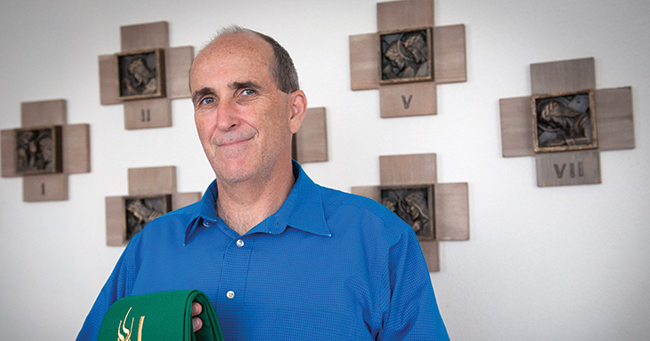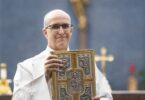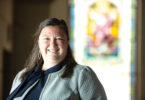by Leon Suprenant

In Acts 6, a pastoral concern arose concerning care for the Greek- speaking widows. Verses 2-3 tell us what happened next:
“The Twelve called together the community of the disciples and said, ‘It is not right for us to neglect the word of God to serve at table. Brothers, select from among you seven reputable men, filled with the Spirit and wisdom, whom we shall appoint to this task.’”
The church sees the origin of the diaconate in the institution of the “seven.” The same biblical passage also provides some guidance for calling deacons today.
The key word here is “select.” The apostles were asking the church community to nominate men for this new task or ministry. They didn’t just ask for volunteers. As Our Lord said, “It was not you who chose me, but I who chose you” (Jn 15:16).
There is no “right” to the diaconate or to any vocation, because vocations are received as a gift. This gift is mediated through the church under the leadership of the successors of the apostles, who call forth and confirm vocations.
But whom were the disciples to select? The first clue is given immediately: “from among you.” This is a frequently repeated pattern. Jesus chose the Twelve from among his disciples. Similarly, when it came time for the apostles to replace Judas, Peter wanted an individual who “accompanied us the whole time the Lord Jesus came and went among us” (Acts 1:21).
And now the apostles are doing something similar, choosing the seven from among those already known to be disciples. The clear upshot is that they want people who are witnesses to the apostolic faith and who have had some seasoning — what we might call “formation” — evidenced by their participation in the life of the church community.
The church today is calling for deacons “from among you.” The “you” are the baptized. All vocations in the church flow from our shared baptism, which impels all of us to holiness and mission. This has always been true, but perhaps has come into sharper focus since the Second Vatican Council.
So when the church turns to “you” for the next generation of deacons, it is looking for men who have a mature, fruit-bearing faith. In other words, we want men who are vibrantly living their baptism. After all, the alb must go on before the stole.
Finally, how was the church to select these men “from among you”? The apostles did not instruct the church to take just anybody, but rather “reputable men, filled with the Spirit and wisdom” (Acts 6:3).
It makes complete sense that in today’s church we would limit our search to men who are Spirit-filled and wise.
As for reputation, deacons possess no “power” by virtue of their ordination to absolve, anoint or celebrate Mass.
Therefore, no one will perceive a need to interact with a deacon who obviously lacks personal and/or spiritual depth. A man who would be a deacon must become a bridge and not an obstacle for others in their meeting with Christ.
Those who are interested in more information on the diaconate are encouraged to visit the website at: www.archkck.org/diaconate.






